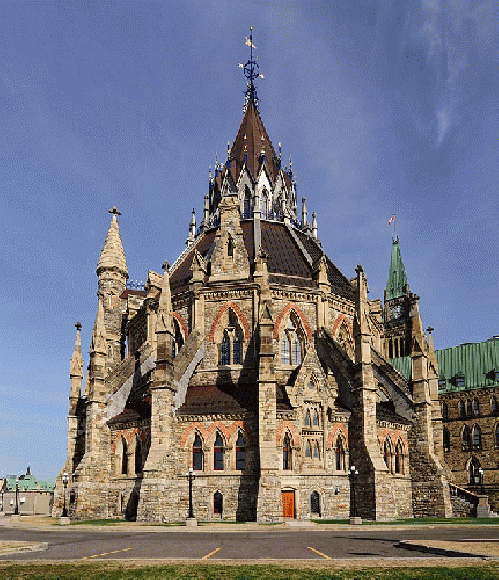
Ottawa - ON - Library of Parliament
(Image by (From Wikimedia) Wladyslaw (talk), Author: Wladyslaw (talk)) Details Source DMCA
Parliament's Library Ottawa Ontario Canada
This article was co-authored by Dr. Betty Martini and by Stephen Fox
A letter from Karen McIntyre, Director General, Food Directorate, from Health Canada, tried to allay any and all of our fears on the aspartame issue. In my recent article (which was recently sent to every member of the Canadian Parliament), entitled Impending Epidemiological Disaster, If Health Canada Removes Labeling from Artificial Sweeteners
Here is McIntyre's letter:
http://www.wpwhi.com/health_canada_responds_no_to_clearly_label_sweeteners.htm
Our article quoted directly from the article on regulations announcing the changes that Health Canada was intending to implement:
"The FDR amendments would repeal labeling requirements related to high-intensity sweeteners such as aspartame, sucralose, acesulfame-potassium and Neotame. Food products containing these sweeteners will no longer require a statement that the food contains the substance, whether alone or in conjunction with other sweeteners, and will no longer require a declaration of the amount of high-intensity sweetener in the list of ingredients. However, where a food product contains aspartame, it will remain mandatory for there to be a declaration that phenylalanine is present."
However, McIntyre wrote entirely contradictory positions about this in her recent response (the point being that deemphasizing or putting in small print any mention of artificial sweeteners is not the same as their original statement that there will be no further requirement to list them in the list of ingredients)
""Health Canada is proposing to repeal a duplicative labeling requirement for foods containing aspartame, sucralose, acesulfame-potassium, and neotame. The proposed regulatory amendments would simply remove the requirement for any of the four sweeteners mentioned above to be shown on the principal display panel of prepackaged foods. All sweeteners, including these four sweeteners, will still be required to appear in the list of ingredients on the product label as is the case for all other food additives. There is a small subset of the population that has a metabolic disorder requiring that they avoid or limit their intake of phenylalanine. Since this amino acid is present in aspartame, the label of foods sweetened with aspartame will still be required to carry a statement to the effect that aspartame contains phenylalanine (it is proposed to also allow use of the alternative statement "Phenylketonurics: contains phenylalanine").
First of all, as a lukewarm and lackadaisical step towards the ultimate real solution which would be banning aspartame, these products are not at all safe and need to be labeled up front, visibly and prominently, not just in some tiny ingredient list that a lot of people may not be able to or are not inclined to read.
FDA scientists involved in the investigation of aspartame, and who asked for the original aspartame patent holder G. D. Searle to be indicted for fraud, told the Senate on 8/1/85 that aspartame was illegally on the market because it caused cancer and violated the Delaney Amendment and FDA should not have even been able to set an allowable daily intake.
The FDA banned it twice, in 1974, telling them not to use it and then trying to have G. D. Searle indicted for fraud. Both US Prosecutors took positions with the defense team and the statute of limitations expired. They still sold it in 1974; a neighbor of mine was involved in building the Augusta, Georgia factory and told me about it and said it almost killed him, he was so sick.
In 1980 the FDA Board of Inquiry revoked the petition for approval. Then Searle brought in Don Rumsfeld; President Reagan owed him a big favor, so Reagan wrote an executive order making the FDA powerless to sign the revoked petition into law. It was marketed through the political chicanery of Don Rumsfeld and never proven safe.
Secondly, Sucralose was invented by an insecticide researcher. In this Aspartame Resource Guide, it gives you several of the serious problems that have been found with Splenda/sucralose. [.mpwhi.com/aspartame_resource_guide.pdf]
Dr. Morando Soffritti of the renowned Ramazzini Institute did a study on it and found it too, to be a carcinogen. Founded in 1982, Collegium Ramazzini is an independent, international academy with 180 invited members from more than 30 countries. Its members are internationally renowned experts in the fields of occupational and environmental health. They are world renowned in cancer researcher and are "independent." For this research, Dr. Soffritti received the prestigious Irving J. Selikoff Award.
Next Page 1 | 2 | 3 | 4 | 5 | 6 | 7 | 8 | 9
(Note: You can view every article as one long page if you sign up as an Advocate Member, or higher).




